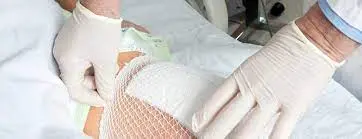- Home
- Medical news & Guidelines
- Anesthesiology
- Cardiology and CTVS
- Critical Care
- Dentistry
- Dermatology
- Diabetes and Endocrinology
- ENT
- Gastroenterology
- Medicine
- Nephrology
- Neurology
- Obstretics-Gynaecology
- Oncology
- Ophthalmology
- Orthopaedics
- Pediatrics-Neonatology
- Psychiatry
- Pulmonology
- Radiology
- Surgery
- Urology
- Laboratory Medicine
- Diet
- Nursing
- Paramedical
- Physiotherapy
- Health news
- Fact Check
- Bone Health Fact Check
- Brain Health Fact Check
- Cancer Related Fact Check
- Child Care Fact Check
- Dental and oral health fact check
- Diabetes and metabolic health fact check
- Diet and Nutrition Fact Check
- Eye and ENT Care Fact Check
- Fitness fact check
- Gut health fact check
- Heart health fact check
- Kidney health fact check
- Medical education fact check
- Men's health fact check
- Respiratory fact check
- Skin and hair care fact check
- Vaccine and Immunization fact check
- Women's health fact check
- AYUSH
- State News
- Andaman and Nicobar Islands
- Andhra Pradesh
- Arunachal Pradesh
- Assam
- Bihar
- Chandigarh
- Chattisgarh
- Dadra and Nagar Haveli
- Daman and Diu
- Delhi
- Goa
- Gujarat
- Haryana
- Himachal Pradesh
- Jammu & Kashmir
- Jharkhand
- Karnataka
- Kerala
- Ladakh
- Lakshadweep
- Madhya Pradesh
- Maharashtra
- Manipur
- Meghalaya
- Mizoram
- Nagaland
- Odisha
- Puducherry
- Punjab
- Rajasthan
- Sikkim
- Tamil Nadu
- Telangana
- Tripura
- Uttar Pradesh
- Uttrakhand
- West Bengal
- Medical Education
- Industry
Microdoses of Incisional Antibiotics effectively reduce Surgical Site Infections in Skin Cancer Surgery

Microdoses of Incisional Antibiotics effective in reducing rate of Surgical Site Infections in Skin Cancer Surgery suggests a new study published in the JAMA Surgery
Surgical site infections (SSIs) represent a costly and preventable complication of cutaneous surgery. However, there is a paucity of randomized clinical trials investigating antibiotic prophylaxis for reducing SSIs in skin cancer surgery, and evidence-based guidelines are lacking. Incisional antibiotics have been shown to reduce the rate of SSIs before Mohs micrographic surgery, but this represents a small subset of skin cancer surgery.
A study was done to determine whether microdosed incisional antibiotics reduce the rate of SSIs before skin cancer surgery.
In this double-blind, controlled, parallel-design randomized clinical trial, adult patients presenting to a high-volume skin cancer treatment center in Auckland, New Zealand, for any form of skin cancer surgery over 6 months from February to July 2019 were included. Patient presentations were randomized to one of 3 treatment arms. Data were analyzed from October 2021 to February 2022.
Patients received an incision site injection of buffered local anesthetic alone (control), buffered local anesthetic with microdosed flucloxacillin (500 µg/mL), or buffered local anesthetic with microdosed clindamycin (500 µg/mL). The primary end point was the rate of postoperative SSI (calculated as number of lesions with SSI per total number of lesions in the group), defined as a standardized postoperative wound infection score of 5 or more.
Results
A total of 681 patients (721 total presentations; 1133 total lesions) returned for postoperative assessments and were analyzed. Of these, 413 (60.6%) were male, and the mean (SD) age was 70.4 (14.8) years. Based on treatment received, the proportion of lesions exhibiting a postoperative wound infection score of 5 or greater was 5.7% (22 of 388) in the control arm, 5.3% (17 of 323) in the flucloxacillin arm, and 2.1% (9 of 422) in the clindamycin arm (P = .01 for clindamycin vs control). Findings were similar after adjusting for baseline differences among arms. Compared with lesions in the control arm (31 of 388 [8.0%]), significantly fewer lesions in the clindamycin arm (9 of 422 [2.1%]; P < .001) and flucloxacillin (13 of 323 [4.0%]; P = .03) arms required postoperative systemic antibiotics.
This study evaluated the use of incisional antibiotics for SSI prophylaxis in general skin cancer surgery and compared the efficacy of flucloxacillin vs clindamycin relative to control in cutaneous surgery. The significant reduction in SSI with locally applied microdosed incisional clindamycin provides robust evidence to inform treatment guidelines in this area, which are currently lacking.
Reference:
Goh M, Hollewand C, McBride S, Ryan N, van der Werf B, Mathy JA. Effect of Microdoses of Incisional Antibiotics on the Rate of Surgical Site Infections in Skin Cancer Surgery: A Randomized Clinical Trial. JAMA Surg. Published online May 24, 2023. doi:10.1001/jamasurg.2023.1201
Dr. Shravani Dali has completed her BDS from Pravara institute of medical sciences, loni. Following which she extensively worked in the healthcare sector for 2+ years. She has been actively involved in writing blogs in field of health and wellness. Currently she is pursuing her Masters of public health-health administration from Tata institute of social sciences. She can be contacted at editorial@medicaldialogues.in.
Dr Kamal Kant Kohli-MBBS, DTCD- a chest specialist with more than 30 years of practice and a flair for writing clinical articles, Dr Kamal Kant Kohli joined Medical Dialogues as a Chief Editor of Medical News. Besides writing articles, as an editor, he proofreads and verifies all the medical content published on Medical Dialogues including those coming from journals, studies,medical conferences,guidelines etc. Email: drkohli@medicaldialogues.in. Contact no. 011-43720751


